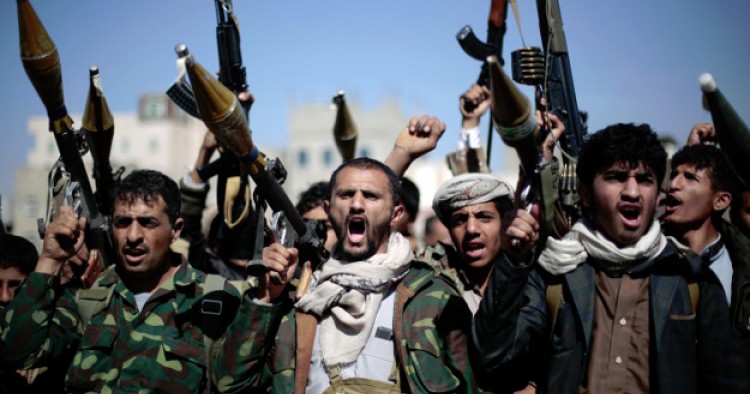News Brief: A top Iranian general hailed the Islamic Republic’s growing military power in the region and claimed that “America’s power is in decline.” Brigadier General Hossein Salami, the deputy commander of the Islamic Revolutionary Guards Corps (IRGC), added: “All statistics and indicators suggest that America’s power is declining and the sun of its lifetime has neared its west… Today, the naval forces of Sepah [IRGC] have gotten taller and are sailing shoulder to shoulder in contact with enemies in the ocean and the Persian Gulf.”
The IRGC’s second-in-command also hailed Iran’s victory in Syria and Iraq over the United States. “America has been standing behind Syria’s door for the past six years and is incapable of direct, military intervention and has become very weak.” In Iraq, he continued, “Americans are not capable of taking action in Iraq, but the Iraqi popular mobilization forces, inspired by Iran’s Islamic Revolution, have now taken the initiative in Iraq’s field developments.” He further noted that “the capacity of the US, Europe and their regional allies for the dominance over the Muslim world is diminishing.”
Comment:
It is difficult to fathom whether Salami’s statements are just another bluster or IRGC leaders truly believe that Iran has become the mightiest power in the region and the US and its regional allies are weak and marginalized. Perhaps it is a combination of the two. But if the Iranian leaders are confident that the United States is a declining power globally and in the Middle East, more Iranian adventurism in the Persian Gulf and the broader region may be on the horizon. Iranian naval forces are already engaging in provocative actions and testing US patience in international waters, and the IRGC has escalated its involvement in regional conflicts from Afghanistan to the Arab world and North Africa. As Pulitzer Prize winner American author Barbara Tuchman noted, “War is the unfolding of miscalculations.”
Read daily news briefs and longer analyses at the IranObserved project.
The Middle East Institute (MEI) is an independent, non-partisan, non-for-profit, educational organization. It does not engage in advocacy and its scholars’ opinions are their own. MEI welcomes financial donations, but retains sole editorial control over its work and its publications reflect only the authors’ views. For a listing of MEI donors, please click here.













